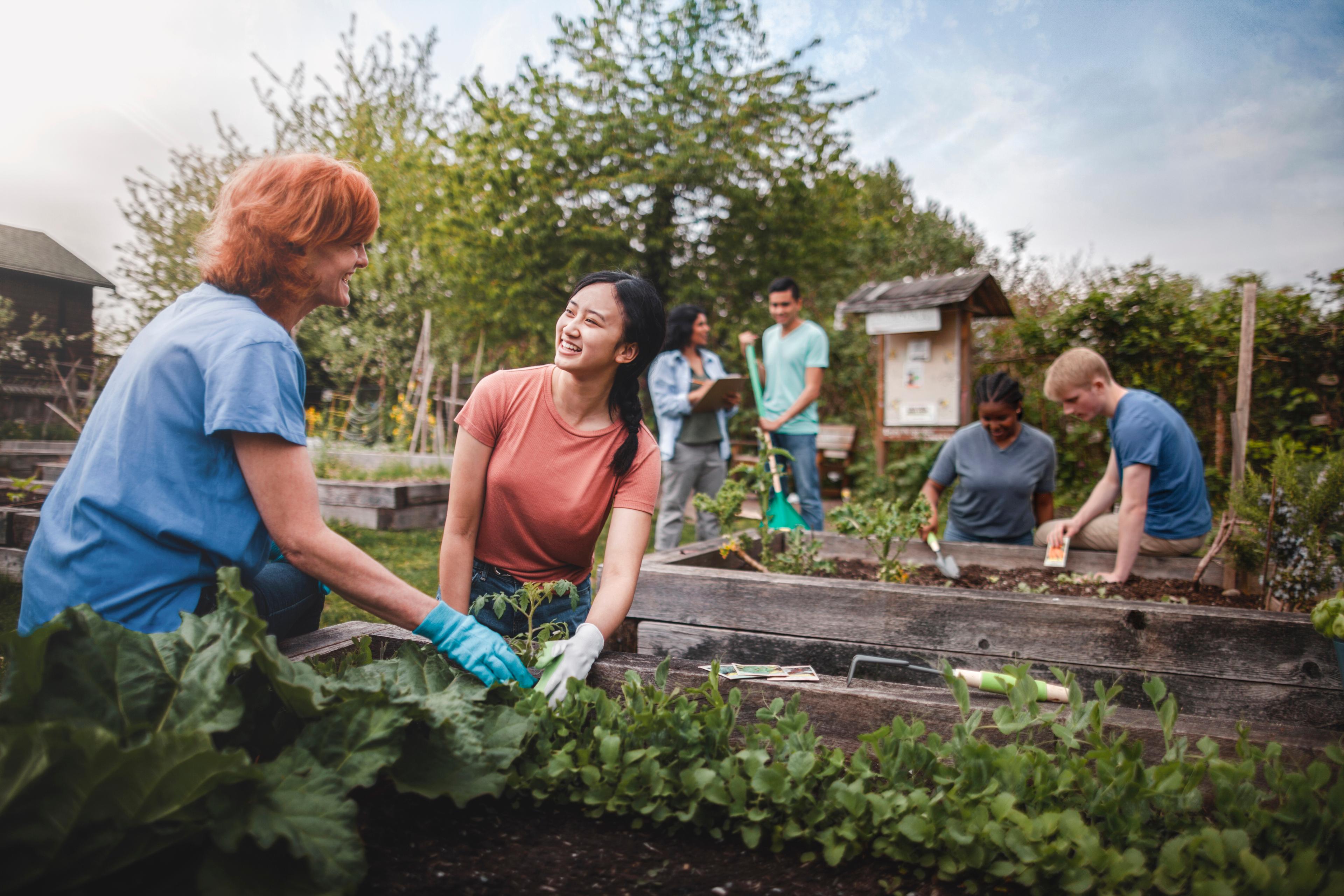Seven Tips for a Successful Garden
Shandra Martinez
| 3 min read

Gardening has been proven to decrease stress and improve overall well-being. You can leverage these benefits through a worksite garden, home garden or volunteering at a community garden.
Here are seven tips for growing a successful garden:
1. Plan your garden. Start by identifying your weather zone and determining when plants can be grown and harvested according to first and last frost dates. One source for this information is the hardiness zone map the USDA offers online. Some other things to consider when you plan your garden:
- Determine how much sunlight your plant needs and find a location that gives your plants what they need. .
- Have a water source nearby. This could include a garden hose with a spray nozzle, weeping hoses or rain barrels.
- Depending on your environment, you may need to protect your plants from deer or rabbits with fencing, netting or gates.
- You will find it helpful to keep a written record of what you planted, where you planted it, pests and how things grew with photographs to refer to next year.
2. Grow what you will eat or things that bring you joy. Plant produce and flowers you and your family enjoy the most and don’t waste space planting what you will not eat or enjoy.
3. The soil you grow your plants in is important. Sandy loam soil is ideal for gardening. You can add organic material if you want. Compost, such as dead leaves and bark, can be laid over the soil at least once a year and will help keep weeds away. If you use manure, make sure it is at least 6 months old or older.
4. Stagger planting times for an extended harvest. Staggered planting will allow you to enjoy your harvest all season long without waste.
5. Pick fruits and vegetables when ripe and at their freshest. This will also keep the harvest coming and will avoid bugs and rotting produce.
6. Designate a person to tend to your garden while you are away. You don’t want all your hard work to suffer, so make sure you have someone lined up to water your garden and harvest fruits and vegetables, if necessary, while you are away. In appreciation for their help, let them take what they will eat.
7. Consider how you will grow your garden based on your location and space. If you don’t have space in your yard, or suitable soil to grow a garden in the ground, there are other options you can consider.
- Raised beds create interest and can be built to suit your needs, even so you don’t have to bend down or plant in the ground.
- Containers, such as pots or grow bags, can be placed on patios and decks.
- Straw bales allow you to garden without soil, digging or weeds.
- Vertical growing allows you to grow more in less space.
Learn more about tending a garden in this Blue Cross Virtual Well-Being℠ webinar, Seven Tips for a Successful Garden. You can also sign up for future employer- or individual-focused webinars and guided meditations here.
Photo credit: Getty Images





